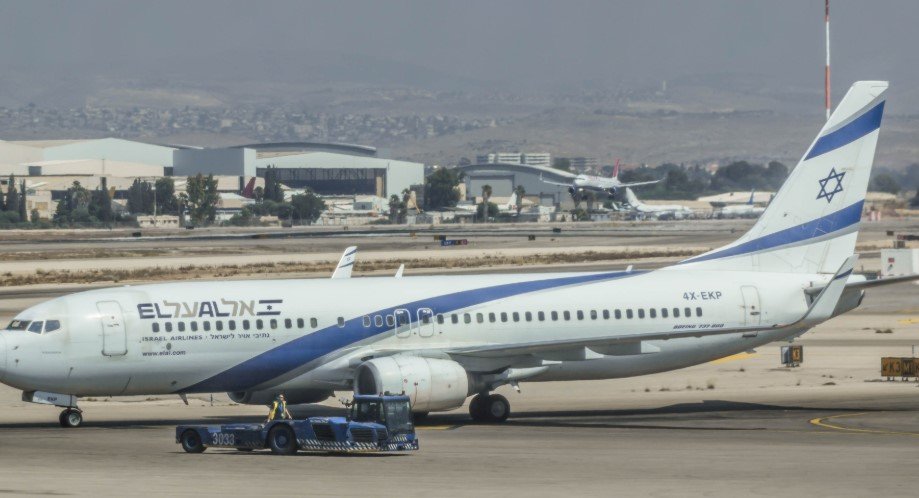As war-weary skies begin to clear over Israel, airlines that bore the brunt of airspace closures during the Iran conflict are pushing back — and demanding the government foot the compensation bill.
More than two dozen international and domestic carriers, including Delta, easyJet, Wizz Air and El Al, have formally asked the Israeli government to shoulder the financial burden of canceled flights that left travelers stranded and scrambling during the 12-day war in June.
Airlines Unite as Fallout Mounts
The letter, delivered Monday to key Israeli ministers, calls on the government to exempt airlines from regulations that require compensation to passengers under flight disruption rules. The carriers say the unprecedented closure of Israeli airspace — triggered by Iran’s missile barrage starting June 13 — should be classified as a force majeure beyond their control.
In legal terms, they’re seeking indemnification.
Israeli law, like EU261 in Europe, typically obliges carriers to refund or compensate customers for delays or cancellations. But when war grounds nearly all commercial flights and sets off a scramble for emergency repatriation efforts, airlines argue the rules need a pause.
The push is being led by the legal firm FISCHER (FBC), representing both foreign and domestic carriers. Tel Aviv-based attorney Shirly Kazir, acting on behalf of the coalition, framed the request as essential given the scale of disruption and ongoing financial uncertainty.

European and American Airlines Still Holding Back
Despite the ceasefire now in place, most U.S. and European airlines have yet to resume their regular schedules into Israel. Many are still conducting risk assessments, nervous about future flare-ups or whether the quiet will hold.
One industry official based in Frankfurt said, “We’re not rushing back into Tel Aviv until we get clarity — both on safety and liability. If missiles start flying again and we’re still on the hook for payouts, that’s a double hit.”
That hesitation has left Israeli airlines — which resumed limited operations as early as June 18 to ferry back tens of thousands of citizens — carrying more than their usual weight.
Actually, it’s still unclear if or when full service will resume from key carriers like Lufthansa, British Airways, and American Airlines.
Who Pays When Missiles Cancel Flights?
At the heart of the dispute is a technical but costly issue: under existing laws, even during war, airlines can be forced to provide refunds or compensation unless specific exemptions are granted. That could translate to millions in liabilities, especially for low-cost carriers that operate on tight margins.
According to the letter, the group is asking Israel to assume financial responsibility for:
-
Passenger compensation for canceled flights between June 13–24
-
Reimbursement for accommodation and rebooking expenses
-
Legal exposure under both domestic and international air travel laws
One Israeli aviation analyst estimated that the total compensation claims linked to the conflict could range between $90 million and $130 million if the government doesn’t step in.
“Most of these airlines didn’t cause the war. They couldn’t even land to pick up people,” the analyst said. “Expecting them to pay out is like blaming a ferry captain for a hurricane.”
Government Response Still Unclear
As of Tuesday night, none of the three Israeli ministers addressed in the letter — Transportation Minister Miri Regev, Finance Minister Bezalel Smotrich, and Economy Minister Nir Barkat — had issued a formal response.
A spokesperson at the Ministry of Transportation acknowledged receiving the request but said only that “internal consultations” were underway. The Finance Ministry, meanwhile, declined comment.
Pressure is mounting though, especially from local tourism groups and business chambers who say Israel’s travel sector can’t afford another blow. A Tel Aviv tour operator warned that ongoing liability would drive ticket prices up or drive smaller carriers out entirely.
“Wizz Air hasn’t flown back here yet — and they might not if this issue isn’t settled soon,” he said bluntly.
Grounded Flights, Sky-High Frustration
During the height of the conflict, Ben Gurion International Airport operated under tight restrictions. On several days, inbound flights were halted completely. On others, only military or repatriation flights were allowed.
That left tens of thousands of passengers — Israelis and foreign tourists alike — stuck in places like Rome, Larnaca, and Istanbul with little information and fewer options.
El Al, Israir, and Arkia were among the few to resume flights early under the government’s direction.
Here’s a rough timeline of the disruption:
| Date | Status of Israeli Airspace | Impact on Airlines |
|---|---|---|
| June 13 | Closed after Iranian missile threat | All commercial flights canceled |
| June 14–17 | Partially restricted | Repatriation planning begins |
| June 18 | Limited reopening | Israeli carriers begin emergency flights |
| June 24 | Full reopening begins | Foreign airlines remain cautious |
Legal Tug-of-War Could Drag On
Legal experts in aviation law say the airlines’ case hinges on whether Israeli regulators are willing to reclassify the war period as an extraordinary circumstance under flight compensation laws. If not, airlines may be stuck with bills they’re adamant they shouldn’t have to pay.
Some even fear that if governments don’t step in now, this could set a dangerous precedent.
“The next time a missile falls near an airport, carriers might pull out completely, knowing they’re financially exposed,” said one European airline executive.
That, they warn, could hurt not just airlines — but also stranded passengers and entire economies that depend on air links to survive.
